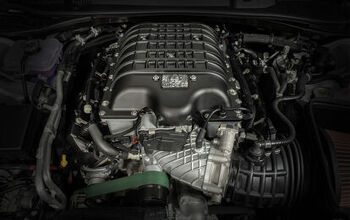Japanese Automakers To Japanese Government: Want More Jobless? No Problem, We Can Deliver

Did we mention that there is a steady drumbeat by Japanese companies that openly think about, or deny (with huge qualifications) moving more and more production outside of Japan? Did we imply that a lot of this noisy thinking might be targeted at the current Japanese administration with which the carmakers are as much at odds as a carmaker can be with an administration that comes with full union backing and is full of former union officials? (Oops, never mind.) Anyway, Japanese carmakers are accusing their government of losing the war of the soft currency (led by the U.S. that lets its dollar slide while accusing others of manipulating their currencies – a good offense beats any defense.) Now the rhetoric is getting less circumspect.
Today, the Yen stands at 81 against the dollar. And Japan is hitting back on all fronts. “Although Washington has long criticized Beijing for not revaluing the yuan quickly enough, many countries now consider the recent sharp fall of the dollar more of a problem than the Chinese currency,” said Yuji Kameoka, chief foreign exchange strategist at the Daiwa Institute of Research to The Nikkei [sub].
The biggest broadside however is fired against Japan’s own government. Under the (for Japan) highly unambiguous headline “Govt Must Stem Carmaker Exodus,” The Nikkei [sub] runs a long editorial that demands (imagine that, in Japan) that “the Democratic Party of Japan-led government should take immediate steps to slow the exodus of Japanese car production to other countries as the trend bodes ill for Japan’s manufacturing sector.”
The Nikkei praises places like Thailand, because “it offers such attractive inducements as promising corporate-tax exemption for eight years to those producing fuel-efficient models. It has also signed free-trade agreements with other ASEAN members and Australia, making it a strategic location from which to export to these markets.”
“In contrast, Japan is increasingly portrayed as the country least suited to host factories for a number of reasons. Its domestic market has shrunk amid a falling population while its corporate tax rate is among the highest in the world. Its government has signed few free-trade or economic partnership agreements. In addition, it appears to be toughening labor regulations at a time when the yen’s value is rising.”
The Nikkei reminds its own government of other industries that are long gone, and that the car industry may soon follow:
“Japanese carmakers used to be less willing than textile and consumer electronics makers to move production to these countries because manufacturing cars requires much larger capital outlays. But they have begun to do so as demand is growing sharply in emerging economies. Their moves overseas are inevitable and cannot be halted given these circumstances.”
The Nikkei makes (by Japanese standards) very blunt demands:
Additional auto production, equivalent to an aggregate 2 million units or so annually, is forecast to be moved overseas from Japan over the next two to three years. In light of this, the government must immediately intensify its efforts to sign economic partnership agreements and significantly trim the effective corporate tax rate if it wishes to slow the outflow.
The Kan government must be alert to Japanese carmakers’ moves because the fate of the auto industry — the largest component of Japan’s manufacturing sector — has far-reaching implications for the sector as a whole.
The Nikkei has always been the voice of the industry. The message is clear: Do something, or we are out of here. Do nothing, and you will be out of here. In Japan as in the U.S.A., the Democratic Party is supposed to be the party of jobs, not the party of jobless. Don’t do that job, and you’ll be out of a job. You are worried about high unemployment? We can give you much higher unemployment, if that’s what you want.

Bertel Schmitt comes back to journalism after taking a 35 year break in advertising and marketing. He ran and owned advertising agencies in Duesseldorf, Germany, and New York City. Volkswagen A.G. was Bertel's most important corporate account. Schmitt's advertising and marketing career touched many corners of the industry with a special focus on automotive products and services. Since 2004, he lives in Japan and China with his wife <a href="http://www.tomokoandbertel.com"> Tomoko </a>. Bertel Schmitt is a founding board member of the <a href="http://www.offshoresuperseries.com"> Offshore Super Series </a>, an American offshore powerboat racing organization. He is co-owner of the racing team Typhoon.
More by Bertel Schmitt
Latest Car Reviews
Read moreLatest Product Reviews
Read moreRecent Comments
- Ajla A union fight? How retro 😎
- Analoggrotto Finally, some real entertainment: the Communists versus the MAGAs. FIGHT!
- Kjhkjlhkjhkljh kljhjkhjklhkjh *IF* i was buying a kia.. (better than a dodge from personal experience) .. it would be this Google > xoavzFHyIQYShould lead to a 2025 Ioniq 5 N pre-REVIEW by Jason Cammisa
- Analoggrotto Does anyone seriously listen to this?
- Thomas Same here....but keep in mind that EVs are already much more efficient than ICE vehicles. They need to catch up in all the other areas you mentioned.


































Comments
Join the conversation
Whatever the outcome of currency valuation or trade wars or whatever I remain firm in my believe that USA dumpsters will continue offering the finest dining among the world's trash receptacle. USA!!!!!!! We're Number One!!!!!!!!
The US imports so much that its currency won't be that high forever and it currently falling. Japan does much of the same, but also for many years kept the yen artificially low. Now China is doing what Japan did. Go figure, when you can export everything and keep jobs, people are happy.